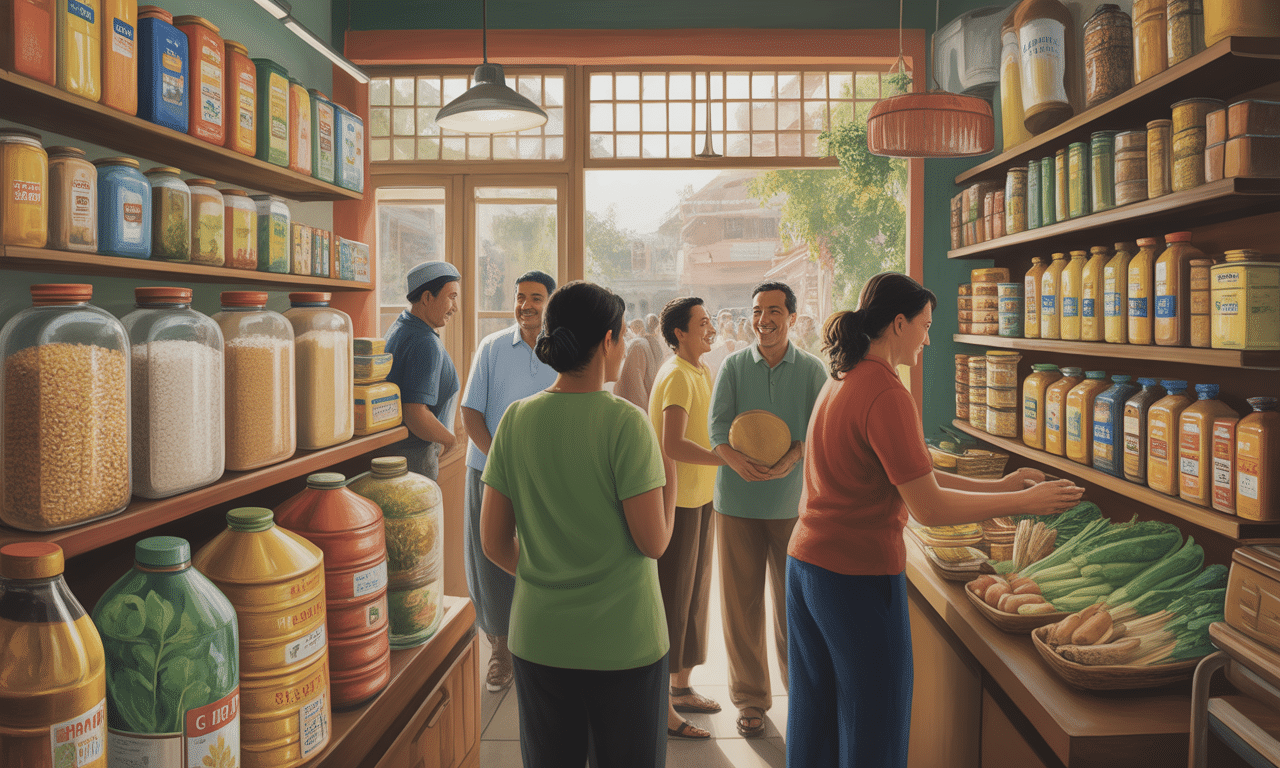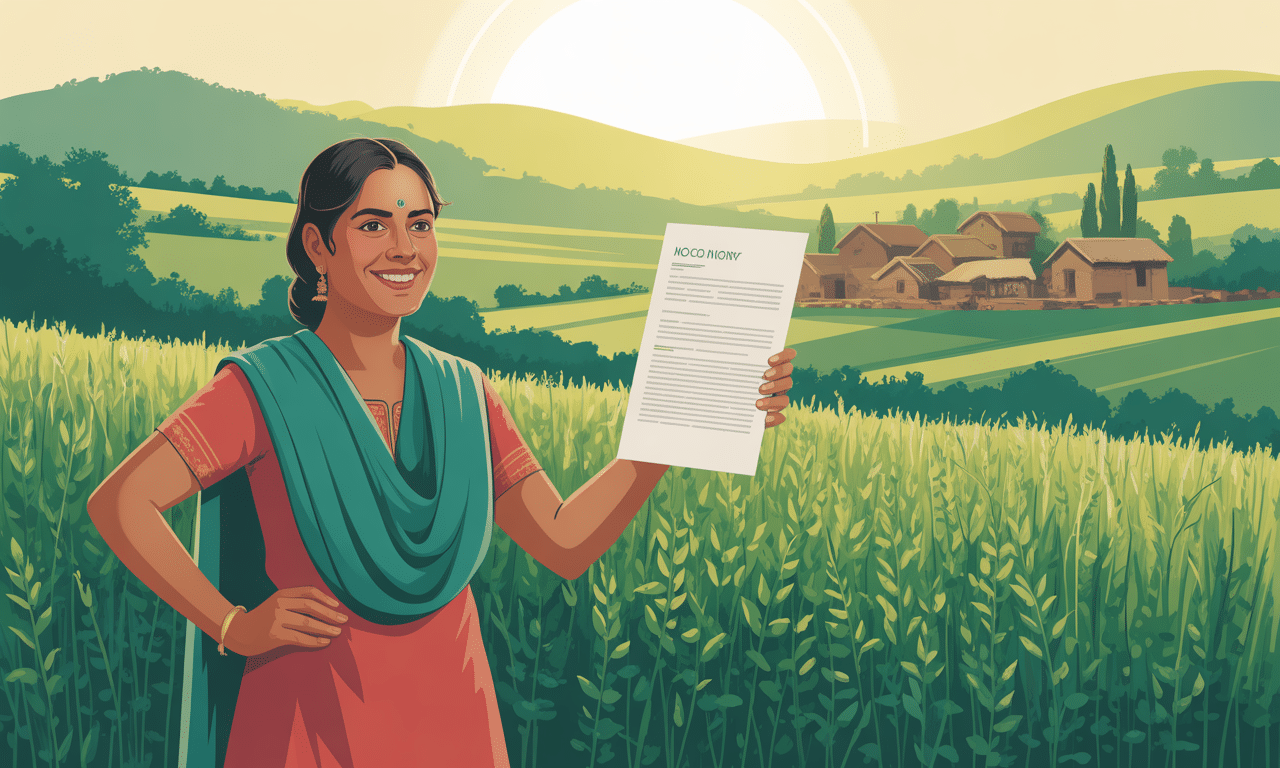Class 6 Civics Chapter 5 Question Answers - Rural Administration
Q1: When do you think a farmer requires a copy of the land record?
Ans: A farmer requires a copy of the land record when he wants a loan from the bank to dig a well in his land.

Q2: What is the purpose of Ration cards?
Ans: The purpose of Ration cards is to help purchase goods at subsidised prices.
Q3: State the main function of Patwari.
Ans: The main function of a Patwari is to measure land and keep land records.
Q4: What was being denied to women before the introduction of the Hindu Succession Amendment Act?
Ans: Agricultural land was being denied to women before the introduction of the Hindu Succession Amendment Act.
Q5: The new law has given the daughter the right to own a share of her father's property. True/False
Ans: True
Q6: What are 'Fair price shops'?
Ans: Fair-price shops are ration shops where only people below the poverty line can buy things.

Q7: What is 'Tehsil'?
Ans: A tehsil is a sub-division of a district.
Q8: What is the work of the police?
Ans: The police register the case in the police station. People submit their complaint in writing to the SHO in the police station. The SHO sends a constable to investigate the incident.
Q9: In the police department, S.H.O stands for ___________.
Ans: In the police department, S.H.O. stands for Station House Officer.
Q10: Who is the head of the tehsildars (revenue officers)?
Ans: The District Collector is the head of the tehsildars.
Q11: Tehsildars hear disputes of various kinds including land disputes. True/false
Ans : True
Q12: Who maintains and updates the records of a group of villages?
Ans: Patwari maintains and updates the records of a group of villages.
Q13: The law under which women enjoy equal share in property is ________________________.
Ans: The law under which women enjoy equal share in property is Hindu Succession Amendment Act 2005.

Q14: Where is the office of Tehsildars located?
Ans: The Tehsildar office is located where land disputes are heard, so that one can easily approach them.
Q15: Panchayat has a tenure of _________ years.
Ans: Panchayat has a tenure of 5 years years.
Q16: What are the other names of Patwari?
Ans: Lekhpal, Patwari, Kanungo, Karamchari and Village Officer.
Q17: Is it important for the landowners to keep a record of their land? If yes, then Why?
Ans: Yes, it is important for the landowners to keep a record of their land because records helps them in case of land dispute.
Q18: Which records provide information about the farmers' land area?
Ans: Khasra record of Patwari provides information about the farmers' land area.
Q19: The Hindu Succession Amendment Act was introduced in the year _______.
Ans: The Hindu Succession Amendment Act was introduced in the year 2005.
Q20: The record that identifies which plot of land is owned by whom is termed as ______
Ans: The record that identifies which plot of land is owned by whom is termed as Khasra.
Q21: Who is in charge of a police station in an area?
Ans: The in charge of a police station is the Station House Officer or S.H.O.
Q22: Who is the administrative head of the district?
Ans: The administrative head of the district is the District Collector. Ever since the creation of the post in 1772, the District Collector continues to be the administrative head of district administration.
Q23: What is the "Khasra Record"?
Ans: The Khasra record consists of a plotwise description of ownership, area, classification, share of ownership, and the status thereof. it identifies which plot of land is owned by whom.
Q24: Can farmers get a copy of their land records? If yes, how?
Ans: Farmers often require a copy of their land's record together with map of their land. They have a right to this information. They can get the information from the district office or the panchayat office. They may have to pay small fees for this.
Q25: What is a khasra number?
Ans: This is the number used for land which is owned by an individual villager or a village community.
Q26: Why do the farmers need a copy of their land records?
Ans: The records are necessary if a farmer wants to buy a plot of land from another, to sell his produce to another, to get loan from the bank to dig a well on his land, to purchase fertilisers for his field and to divide his property among his children.
Q27: In which year The Hindu Succession Amendment Act was introduced?
Ans: 2005
Q28: What do you mean by pubic distribution system?
Ans: The food provided by the Government at highly subsidized rates to poor people
Q29: ______________ is the principal Revenue Officer in the district.
Ans : Collector

Q30: The Hindu Succession Amendment Act, 2005 is related to what?
Ans: All the members (sons or daughters) in a family get an equal share in the family's property.
Q31: What is the main issue of the Hindu Succession Amendment Act 2005?
Ans: Women's share in the family's agricultural land.
Q32: How is the ration distributed to people?
Ans: The rations are distributed to the people through a chain of shops called ration shops all over the country.
Q33: Who keeps the Khasra records in the village?
Ans: Patwari keeps the Khasra records in the village.
Q34: What are the needs of the village people?
Ans: The village people need water facilities, electricity, road connections, hospitals and schools etc.
Q35: What is meant by rural administration?
Ans: Rural Administration is administering villages like Panchayat Boards.
FAQs on Class 6 Civics Chapter 5 Question Answers - Rural Administration
| 1. What is rural administration? |  |
| 2. What are the main functions of rural administration? |  |
| 3. How does rural administration impact the lives of villagers? |  |
| 4. Who is responsible for rural administration in India? |  |
| 5. What challenges does rural administration face? |  |






















